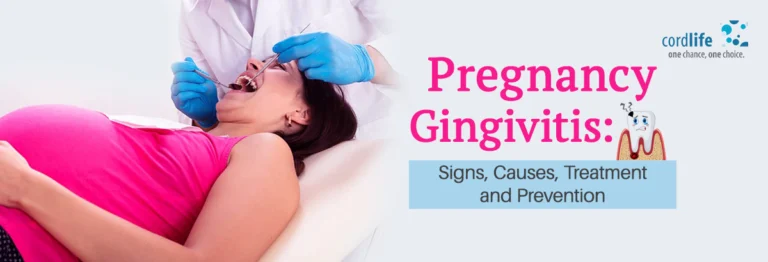Your pregnancy journey is exciting and hectic. Cultivating another life within you is not an easy task. You go through a lot. You feel thrusting, itching, tiredness, stretch marks in the abdomen, etc. Aside from that, you may need to be a little more careful with your teeth and gums. Gums may be a little vulnerable. They may bleed when you brush and floss in the morning or at night. You may experience gingivitis during this time.
What is pregnancy gingivitis?
Gingivitis is a condition that involves inflammation of the gums due to the presence of bacteria. As a result of gingivitis caused by dental plague, the gums are irritated, swollen, red and bleed. Plaque is a sticky film on the teeth after you wake up in the morning contributing to tooth decay.
According to the Centers for Disease Control and Prevention, gingivitis affects between 60% and 75% of pregnancies.
What causes gingivitis during pregnancy?
The surge in pregnancy hormones is the main driver behind pregnancy gingivitis. Due to rising pregnancy hormones, bacterial plaque builds up between the teeth and surrounds the base of the teeth. Yellow-white plaque can slowly harden into tartar or calculus near the gums.
Diet Change
During pregnancy, you crave both salty and sweet foods. This means that taste preferences are changing. Choosing unhealthy snacks or comfort food can make your gums feel uncomfortable. Additionally, nutrient intake is slightly higher than it was during non-pregnancy days. You may need to include more carbohydrates, fiber, protein, etc. in your pregnancy diet. This is quite natural, but at the same time, it can cause oral health problems.
Aversion to toothpaste
It is not only the change in taste that affects your oral health, but not brushing your teeth twice a day as advised by your dentist can cause dental problems and lead to gingivitis during pregnancy.
Morning sickness
Nausea and morning sickness during the early stages of pregnancy have a compounding impact on your teeth. Tooth enamel encounters plenty of strong acids due to constant vomiting. Such acids weaken the enamel of white pearls.
Changes in saliva and decreased saliva production
With increasing pregnancy hormones, there is less saliva production. In addition, your saliva becomes more acidic. This means that the carbohydrates you eat stick to the surface of your teeth for a very long time and possibly build up plaque.
Can pregnancy gingivitis be harmful to your growing baby?
Due to conflicting evidence, some relationships have been found between pregnancy gingivitis and low birth weight, preterm birth as well as preeclampsia. A few more studies have shown no association between dental gum disease and serious pregnancy outcomes or complications.
At the same time, as a mum-to-be, you’ll be happy to know that as long as you practice good dental hygiene, gingivitis during pregnancy is unlikely to harm you or the baby inside.
How will you treat gingivitis during pregnancy?
It’s simple! The appointment with the gynecologist to check your pregnancy health is your pregnancy routine. At the same time, it would help if you visit the dentist to keep your teeth free of gingivitis. The dentist will give you some ways to take care of your dental health.
- Brush your teeth twice a day for 2 minutes.
- Use a fluoride toothpaste while brushing your teeth. You can alternate between brushing your teeth using baking soda toothpaste. Baking soda can help remove harmful acids from the teeth.
- Use a toothbrush with soft bristles so your gums don’t hurt.
- You might want to skip flossing since you’re already tired of dealing with other pregnancy complications, but that’s not a very good habit. Don’t say “no” to the thread. Flossing will remove food stuck between your teeth.
- Rinse your teeth with alcohol-free mouthwash. You can alternatively rinse your teeth with salt (Add 1 teaspoon of salt to a cup of warm water). Salt water is a natural saline rinse that soothes your gums.
- Reduce your sugar intake. Your craving for those “sweets” or a few bites of naturally sweet fruit can make your gums prone to disease and infection.
- Take your prenatal vitamin. Vitamin C is healthy for your gums and calcium for the bones of your teeth.
Don’t miss your dentist appointment for your sensitive gums. The best time to visit your dentist is at the beginning of the second or third trimester. You may notice the symptoms of pregnancy gingivitis (inflammation and bleeding) at the beginning of the second and third trimester.
The right timing means less plaque and less plaque means less inflammation. Pregnancy gingivitis is just like other pregnancy complications that you may have to deal with.
